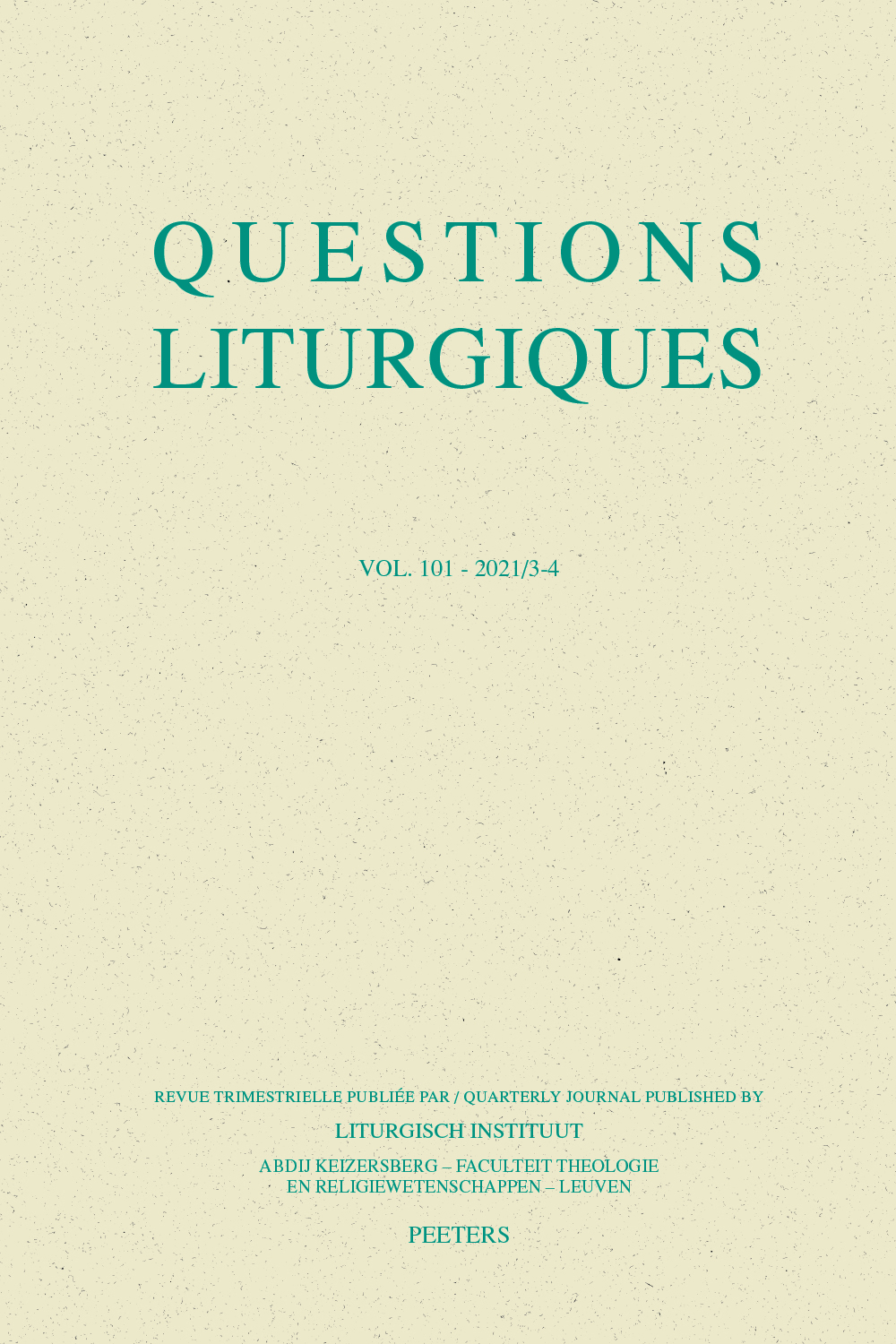 previous article in this issue previous article in this issue | next article in this issue  |

Preview first page |
Document Details : Title: La réforme liturgique Subtitle: Ce qui reste à faire Author(s): DE CLERCK, Paul Journal: Questions Liturgiques/Studies in Liturgy Volume: 91 Issue: 1-2 Date: 2010 Pages: 64-75 DOI: 10.2143/QL.91.1.2047030 Abstract : Ancien directeur de l’Institut Supérieur de Liturgie (Paris), Paul De Clerck est un témoin attentif de la difficile «réception» de la réforme liturgique à laquelle il a consacré bien des années de travaux et de recherches. Son étude s’intéresse à ce qui n’a pas encore été reçu de la réforme liturgique conciliaire. Les livres liturgiques révisés ont pratiquement tous paru mais nos célébrations sont-elles à la hauteur des propositions liturgiques qui nous sont offertes? Certaines réformes liturgiques ont été (trop) rapidement reçues: la concélébration, la langue liturgique, l’autel «face au peuple», la prière universelle, les prières eucharistiques, le lectionnaire biblique, les ordinations, le diaconat permanent, le chant et la musique. D’autres réformes ont été accueillies avec plus de lenteur: le catéchuménat des adultes, l’espace liturgique, la communion au corps et au sang du Christ, la liturgie des Heures au sein du peuple chrétien. Enfin, sur plusieurs sujets, la «réception» du concile est loin d’être réalisée: comment se perçoit et se vit la prière eucharistique dans les assemblées chrétiennes, dans quel esprit les chrétiens communient-ils – est-ce un geste qui les «branche» sur le mystère pascal du Christ et la communion eucharistique est-elle également communion à l’Église? –, où en est la pastorale du sacrement de réconciliation? Deux chantiers demandent à être ouverts: celui des oraisons de la messe et celui d’un répertoire commun et de qualité des chants liturgiques. Les défis à relever ne manquent pas: la formation, la mystagogie, l’art de célébrer, une juste «participation active», et surtout la reconnaissance que Vatican II n’est pas «derrière nous» mais encore loin «devant nous». Paul De Clerck is the former director of the Institut Supérieur de Liturgie (Paris). He gives attentive witness to the difficult ‘reception’ of the liturgical reform, to which he devoted several years of work and research. His studies focus on what has not yet been received from the conciliar liturgical reform. Revised liturgical books have been published everywhere, but are our celebrations at the same level as the liturgical proposals offered to us? Some of the liturgical reforms were (too) quickly received: concelebration, the liturgical language, the altar ‘directed to the people’, the universal prayer, the Eucharistic prayers, the biblical lectionary, the ordinations, the permanent diaconate, the singing and music. Other reforms were more slowly received: The catechumenate for adults, the liturgical space, communion with both Body and Blood of Christ, the liturgy of the hours in the heart of the Christian people. Lastly, on some topics the ‘reception’ of the Council is far from being realized: how to perceive and to live the Eucharistic prayer in the Christian assemblies, in what kind of spirit do they take communion – is it a gesture ‘connecting’ them to the paschal mystery of Christ and is the Eucharistic communion also communion with the Church? – where is the pastoral care concerning the sacrament of reconciliation? We should start work in two areas: first the prayers of the mass, and second a common and qualitative repertoire of liturgical songs. Many challenges have to be taken up: formation, mystagogy, the art of celebrating, a right ‘active participation’, and above all the recognition that Vatican II is not ‘behind us’ but still a long way ‘ahead of us’. |
|


